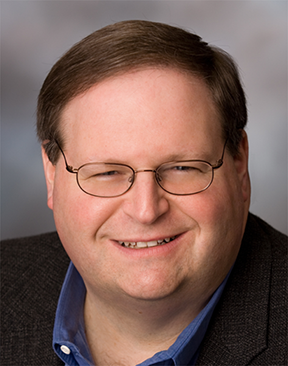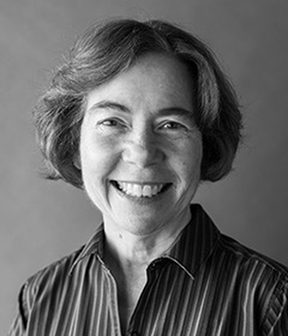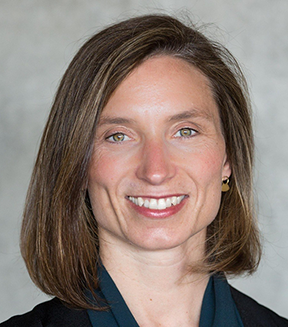November 2020 Election notes
by Vicky Siah, CMN intern
- Metro Council candidates: District 5
- District 33 State Representatives
- Tualatin Soil & Water District Board Position At-Large No. 2
- Washington County Charter Amendments
- State Measures
- Metro Regional measure
Voter pamphlets will be released during the first week of October, but to help make voting information more accessible, Cedar Mill News has compiled information on key measures and positions on the 2020 general ballot for those in the Cedar Mill area.
The importance of voting cannot be stressed enough—as one of the most important civic duties, voting in the November general elections carves Oregon’s future. Every voice counts towards progress, and on the ballot, the diverse perspectives of Oregon voters create tangible impacts. Prospective voters have until October 13 to register in-person, through mail, or online here.
Metro Council candidates: District 5
Each Metro Councilor serves a four-year term. Cedar Mill is split between Districts 4 and 5, and this November, candidates Chris Smith and Mary Nolan are running for the District 5 Councilor position.

Chris Smith is an experienced transportation activist and a dedicated member of the Portland Planning and Sustainability Commission (PSC). His campaign is oriented around combating climate change—he is shifting public favor towards cycling and public transportation; simultaneously advocating for bike lanes and transit projects.
He says, “Waking up to deep brown smoke occluding the view from my apartment left me with deep sadness and fear: sadness for those who had lost more than just the view from their home, and fear knowing this is just the beginning. It wasn’t just poor land management that stoked these fires, it was climate change.
“We must acknowledge climate change, but it’s not enough to simply acknowledge—there has to be action and responsibility. We must elect public officials who will fight for comprehensive climate policy.“
Chris Smith has been an active climate champion for years. He has and will continue to fight fossil fuel infrastructure, prioritize and improve transit justice, and provide safe and accessible biking and walking infrastructure as a Metro Councilor. Voting is the easiest step to beginning our fight against climate change. More information about Smith can be found at chrisformetro.com.
Mary Nolan is campaigning on the theme of delivering big progressive change. She highlights her previous executive experience and her accomplishments during 12 years as State Representative to demonstrate her effectiveness. Nolan details her past contributions to Oregon:

“Mary Nolan, former State Representative and electronics executive, has the experience, temperament and dedication we need on Metro. Throughout her career, she negotiated and enacted landmark laws for balanced land use protections (conservation and development), government accountability, voting rights, habitat preservation, public safety, climate-friendly transportation improvements, college scholarships, and retirement security. She is broadly acknowledged for superior negotiating skills and collaborative approach, and a deft capacity for convening competing interests in productive problem-solving.
In the House, she achieved legislation to protect renters, promote affordable housing construction, increase minimum wage, support small business growth and assure family-friendly workplace protections. Nolan launched Portland’s curbside recycling system, expanded Oregon’s bottle bill and empowered alternative fuel start-ups to reduce greenhouse gases. Alongside politics, she founded and led a NASA-awarded profitable avionics design and manufacturing company in Hillsboro. She aims to bring this collaborative energy and focus on accountability to Metro.” More information about Nolan can be found at nolanformetro.com.
District 33 State Representatives
The Oregon Legislature consists of the Senate and House of Representatives. Oregon State Representatives are elected to two-year terms, and the District 33 House seat is up for election in November. The two candidates are Dick Courter and Maxine Dexter.

Dick Courter is a professional consulting forester and a member of the Republican Party. His campaign aims to increase government transparency and promote the voices of Oregonians. If voted in, Courter will add political power to the Minority Party in the House of Representatives.
Courter released a statement on his campaign: “My opponent on September 4, 2020 wrote ‘…last weekend, Portland witnessed a white-supremacy-fueled wave of violence intended to antagonize and demean our community’s powerful calls for racial justice…’ This rally was well advertised as support for our President. Never was it promoted to ‘antagonize and/or demean’. This first amendment rights of free speech rally reportedly numbered 10,000 persons occupying 3,500 parading vehicles spanning 16 miles. This comment suggests my opponent supports the Super Majority agenda by muddying the waters and not respecting voices of all Oregonians.
Is this what you want in your State Representative? I will listen, work for—and with—you while analyzing every legislative bill before me to make certain each is constitutional, fiscally responsible and fair to all Oregonians. Had Enough? Eliminate super-majority rule. Bring balance to the Oregon Legislature. Choose Dick Courter for State Representative HD 33.” More information about Dick Courter and his positions can be found at dickcourter.com.
Maxine Dexter is a pulmonary and critical care doctor with Kaiser Permanente, and she is serving as the sitting District 33 State Representative. As a Democrat, she is fighting for health care reform, gun violence prevention, increased school funding, union support, and women’s reproductive rights. Addressing climate change, she seeks to reduce pollution and advocate for marginalized communities, and toward equitable housing, she plans to end mortgage deduction for families in the top 5% income bracket.

“On June 14, I was humbled to be appointed to complete Representative Mitch Greenlick’s term, serving HD33. Since then, I have served in two special sessions, supporting police accountability measures, education funding, balancing the state budget, COVID relief, and more. If elected November 3, I will bring my years of experience as a Kaiser Permanente physician as well as my business experience as Chair of the Board of our medical group to help make comprehensive healthcare reform a reality. As a mother and a progressive woman, I am also fervently supportive of laws that will boldly address climate change, systemic racism, reproductive freedom, firearm violence, income inequality, and worker’s rights. We must do what is right for people, keeping in mind those who have been marginalized the most, as we move forward together with courage and compassion to make Oregon a better place for all of us to thrive.”
Additional information about Dexter’s campaign can be found at maxinefororegon.com
Tualatin Soil & Water District Board Position At-Large No. 2
The Tualatin SWCD serves all of Washington County and is led by a seven-person unpaid board of directors. The SWCD provides technical, financial, and educational assistance to help people voluntarily conserve natural resources, emphasizes sustainability, and works to create a productive environment for Washington County. SWCD programs have helped clean up the Tualatin River, reduced the threat of wildfire in our forests, and helped ensure that family farms continue producing the healthful local produce sold at farmers’ markets.
The three candidates running for this position are Dean Moberg, Kieran Sikdar, and Casey Storey.

Dean Moberg prioritizes listening to the Oregon community on environmental decisions and serving all residents in conservation projects. His campaign focuses on protecting complex ecosystems. By expanding Tualatin SWCD’s outreach, he seeks to reduce Oregon’s carbon footprint. Moberg is a strong advocate for equity, inclusion, and diversity in SWCD, stating:
“The SWCD helps Washington County residents voluntarily conserve natural resources. I recently retired after 35 years as a USDA soil conservationist. Most of my career was in Washington County, working closely with the SWCD. I am now a volunteer for the SWCD, serving as an Associate Director, a member of the Budget Committee, and a member of the Oak Preservation Committee.
I support local family farms and forests, practical, effective conservation in rural and urban areas, healthy soil, clean water, resilient forests, greenhouse gas reduction; and actively ensuring justice, diversity, equity, and inclusion in SWCD programs. I’m married to Sara Pascoe, a Nurse Practitioner at OHSU. We have two adult daughters.”
For more information on Dean Moberg’s campaign, visit deanmoberg.com.
Kieran Sikdar has provided the Cedar Mill News with a campaign statement:

“For over 20 years, I have focused on sustainable natural resource management. I have designed and implemented green infrastructure projects that conserve water, reduce flooding, improve air and water quality, increase shade, and provide habitat. I utilize Holistic Land Management to reduce soil erosion, improve water quality, reduce flooding and fire risk, and restore natural habitats.
In addition to being a father, I have been caring for my partner who has suffered many health challenges from exposure to environmental pollution. Her health journey has further inspired me to create projects that value and protect life in all forms by providing clean air, land, and water for all, especially those community members who have historically lacked access to these resources.
It would be an honor to continue to help the district fulfill its mission of creating a sustainable, just, and productive Washington County. For more information about me, please visit: www.linkedin.com/in/kieransikdar/.”
Casey Storey has provided the Cedar Mill News with a campaign statement:

“As a candidate for the at-large position #2 on the Tualatin Soil and Water Conservation District, Mr. Storey is excited to represent urban and rural constituents in Washington County. Mr. Storey will provide the board with a voice representing County residents who value programs focused on sustainable local agricultural production, protection and enhancement of local waterways, natural resource enhancement and preservation, and educational opportunities for residents.
Mr. Storey recognizes the significant contribution that urban constituents of Washington County provide to the TSWCD in funding from taxes and values the incredible richness of Washington County’s agricultural economy. Mr. Storey will strive to leverage and represent both of these assets during his time with the District. To serve him in this mission, Mr. Storey brings a background in budget and project management, an education in conservation and sustainability, and a love of what makes Washington County a great place to live.”
Washington County Charter Amendments
Amendment to Section 30(e) of Washington County Charter
Section 30(e) sets the salary of the chair at 80% of the circuit court judge and the commissioner’s salary at 40% of the salary of the chair. This amendment seeks to replace these guidelines with a five-member salary commission of independent qualified HR professionals. This new commission would then decide upon salaries (of the chairs and commissioners) by January 1 of every odd year. Voting “no” indicates that the current chair and commissioner salary guidelines should remain.
Amendment to Section 103 of Washington County Charter
Section 103 limits the time frame in which Washington County can hear a land use ordinance—the county cannot hear a land use ordinance until March 1, and an ordinance cannot be adopted from November throughout February. Removing this restriction would allow Washington County to adopt and amend these ordinances without time constraints. A “no” vote means that the present land ordinance time frame should not be amended.
State Measures
Measure 107: amendment to Oregon Constitution
This amendment to the Oregon Constitution would allow lawmakers to pass laws limiting campaign contributions, laws requiring contribution information to be disclosed, and laws that require politicians to identify the sponsor of advertisements. The current Constitution prohibits these regulations, but with a “yes” vote, this amendment will affect laws enacted or approved on January 1, 2016 and after. A “no” vote does not change the Oregon Constitution, and the current system will remain as is.
Measure 108: increasing tobacco and e-cigarette tax
Revenue from the proposed tax increase of tobacco and e-cigarette products will be used to fund Oregon Health Authority (OHA) programs. These programs include the Medical Assistance Program, tobacco education, mental health services, and tribal healthcare. A “no” vote will maintain ongoing tax and funding rates.
Measure 109: regulatory program for psilocybin
At present, psilocybin (a product of fungus) is a psychoactive substance prohibited by federal and state law. A “yes” vote allows for the legalization of psilocybin and the creation of an Oregon Psilocybin Services Program (OPSP). OPSP will be a regulatory program for the manufacture, possession, and administration of psilocybin to adults 21 years of age and older, following a development period of two years. Packaging and labeling will be regulated with mandatory dosage requirements, and a sales tax will be enacted on sold psilocybin products. A “no” vote means that the illegal categorization of psilocybin will be retained.
Measure 110: decriminalizing controlled substances
Measure 110 seeks to reclassify most drugs and reduce the non-commercial possession of drugs to a Class E violation. If measure 110 is approved, drug addiction treatment centers and recovery programs would be created statewide by October 1, 2021. These services would be funded in part by marijuana taxes. Voting “no” means that classifications and marijuana tax dedication will not be changed.
Metro Regional measure
Measure 26-218: “Get Moving 2020” transportation project
Metro is proposing measure 26-218 to fund approximately 150 transportation projects. These projects will be located in 17 corridors within Multnomah, Washington, and Clackamas counties. Currently, Metro is considering an additional light rail line between downtown Portland and Washington County, a regional bus network, bridge replacement and repair, sidewalks, pedestrian crossings, off-street biking and walking facilities, and other traffic upgrades.
If the measure passes the November general election, these programs would be funded through taxes on employers with over 25 employees (local and state government is exempt from this taxation) starting in 2022. Oregon employers would pay at a rate less than or equal to 0.75% of their district payroll; from this tax revenue, grants and allocations will be given to local jurisdictions and transportation agencies. A “no” vote means that this taxation should not take place.
For more information on Measure 26-218, Metro provides an overview and fact sheet at https://www.oregonmetro.gov/public-projects/get-moving-2020.





